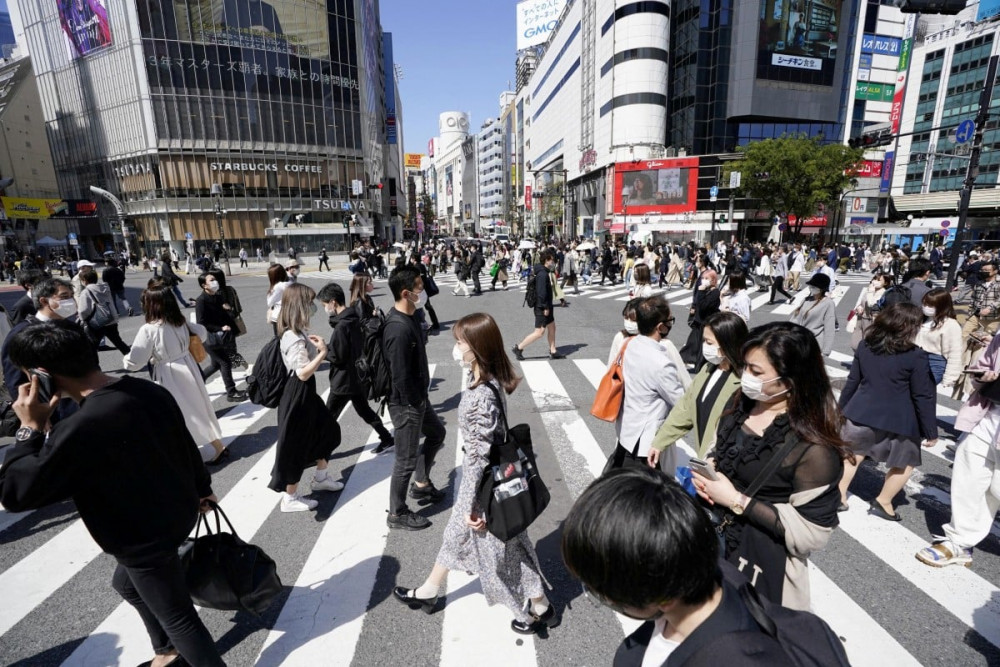
April 30, 2024
Health authorities warn of spike in potentially lethal STSS cases
Japan battles ‘flesh eating’ infection outbreak
By Oliver Arlow
Japan’s health authorities have expressed concern about a sharp increase in the number of cases of streptococcal toxic shock syndrome, also known as STSS, and are calling on people to seek medical assistance in the event they show two of the possible eight symptoms.
In a risk assessment document released on March 29, the National Institute of Infectious Diseases (NIID) confirmed there were 941 cases of STSS reported in 2023, but 556 cases of the illness by March 24 this year.
The bacterium has also spread across Japan, with cases reported in 45 of 47 prefectures, NIID reported. “There are still many unknown factors regarding the mechanisms behind fulminant (severe and sudden) forms of streptococcus and we are not at the stage where we can explain them,” the institute said.
A risk assessment issued by the NIID on March 29 identified symptoms as including shock, liver failure, renal failure, acute respiratory distress syndrome, soft tissue inflammation, rashes and effects on the central nervous system.
The Asahi newspaper reported on April 5 that cases tend to increase in April and May, coinciding with the start of the new school year. Nevertheless, the majority of those diagnosed with the illness are in their 30s or older, with an alarming 30 percent of cases ending in death because the symptoms can worsen suddenly.
Experts understand the illness typically spreads in the same way as other bacteria, primarily through contact or the inhalation of microdroplets, but experts say treatment is proving challenging. Typically, older people or those with underlying health complaints are considered to be at greater risk of STSS, with NIDS suggesting that an examination of the bacterium had determined that it is a variant of the M1UK strain, which was prevalent in Great Britain in the 2010s and is “considered to be highly pathogenic and transmissible.”
“It is becoming a serious problem, but there are still many things that we do not know about it,” said Kazuhiro Tateda, president of the Japan Association of Infectious Diseases and a member of the advisory panel set up to advise the Japanese government at the outset of the coronavirus crisis in early 2020. “We do know that it is a variant of the strain that was spreading in the UK but we do not know how or when it came to Japan,” he told The South China Morning Post.
“The infection progresses so rapidly that it is sometimes difficult to respond quickly enough to save a patient’s life,” said Tateda. “We need to be able to detect the bacteria early and for people to take better precautions.”
Health experts are recommending that anyone with symptoms, which often start with painful skin lesions or tonsillitis, seek medical advice immediately.
“It is not possible to say whether the outbreak is going to get worse, but we do need to be careful and try to monitor the number and spread of the cases,” Tateda said.
Despite the experts’ warnings, the health ministry appears to be trying to play down reports in foreign media about the increase in cases of STSS in Japan, perhaps concerned by headlines highlighting the “flesh-eating” disease.
Coverage of the outbreak by The Guardian, Reuters, The Straits Times and other media outlets have highlighted the spike in the number of cases, emphasizing the worrying 30 percent fatality rate.
The ministry has responded to those concerns, with an official telling the Asahi newspaper that there is no need for travelers to cancel plans to visit Japan out of concern of contracting STSS, emphasizing that frequently washing your hands, wearing a face mask and keeping any open wounds clean should be sufficient to prevent infection.
This page has been brought to you as a public service of the Yokohama Bluff Medical and Dental Clinic www.bluffclinic.com







